
4

6
Former


Lord



4

6
Former


Lord

MAY I firstly wish everyone a very Happy and Prosperous New Year – we all look forward to a greater degree of normality and certainty during the year ahead.
It is a real privilege and honour to be elected as your Chairman for 2023 and I must thank John Lee on behalf of us all for his great leadership during 2022. His energy and ability to lead the Committee and organise an impressive range of events certainly raised the bar for my year.

John’s trip to Devon was most enjoyable, embracing farming and culture, and a most memorable visit to his home, when the sun shone, his garden was magnificent and all Devon’s high society turned out to greet us. Thank you John for all of your sound advice and friendship.
As members we are very fortunate to have such a professional, dedicated Executive Team led by Andrei and Virginia who have all worked exceedingly hard over recent years maintaining the excellent hospitality we have come to expect. The covid years were extremely difficult and I thank you all for your huge effort, as we now look to a bright and positive future.
The Club is most fortunate that the Trustees and members of the various committees, along with the executive team, work together so closely. This is important in maintaining a successful and hospitable Club, particularly with the challenges we face.
All-time high 2022 was a very good year with occupancy and Restaurant reservations at an all-time high. Hopefully, as we move forward, some of the acute staffing shortages the Club has encountered, like other hospitality venues, will be resolved. Hospitality, food processing, farming and horticulture have all had extreme difficulties recruiting staff over the past two years. Do we blame covid (generous furlough scheme) or Brexit?
Last year was a momentous year with the sad passing of Her Majesty Queen Elizabeth ll, our Patron. Her Majesty was a staunch supporter of all things rural and particularly farming and will be greatly missed. We wish King Charles lll all the very best of health and happiness during his reign.
It has been well documented that the past twelve months in farming have been amongst the most challenging for decades. Uncertainty, following Brexit, the continuing effects of covid, and war in Ukraine, caused a rapid rise in inflation that has affected fuel, fertiliser, energy and feed costs. This has put many farming cashflows under extreme pressure. Combined with last year’s serious drought this could, I fear, jeopardise our ability to maintain and increase agricultural production within the UK.
I am working closely with the executive team in organising an interesting programme for 2023. A three day visit to Pembrokeshire has been arranged and we are considering a two day trip to Norfolk to coincide with the Royal Norfolk County Show. This could be an opportunity for members to meet on the eastern side of the country who may see Pembrokeshire as a long distance to travel.
The Club plans to visit many UK Agricultural Shows, plus the famous Henley Regatta within the Copas enclosure. A day visit to the Bank of England and Lloyds Insurance building is also planned, and a day to trip to the Greenwich Maritime College Museum and Observatory.
We are renowned as a very hospitable members club and I have had the privilege of being a member since 1990. The Club was my second home during my years as office holder at the NFU and the warmth and camaraderie I encountered will always be fondly remembered. It is the perfect place to meet friends, new and old alike, to discuss the relevant issues of the day in very pleasant surroundings. Please support the Club in the year ahead and I look forward to meeting as many members as possible.
“Please support the Club in the year ahead and I look forward to meeting as many members as possible.”
“Inflation has put many farming cashflows under extreme pressure. Combined with last year’s serious drought this could, I fear, jeopardise our ability to maintain and increase agricultural production within the UK.”



Late 2022 saw a host of wide-ranging and milestone Club events, making it busier than ever leading up to Christmas, writes Club Secretary & Chief Executive Andrei Spence This delivered a very successful period financially, and most importantly saw more members back at the Club who have not visited since pre-pandemic.
As a consequence the Club has been able to repay 64% of its covid related loan, allocate a significant amount to the Trustees to invest in the Lease Renewal fund, and undertake a small CAPEX project to benefit current members.
Thus we have been able to implement our strategy of dealing with legacy debt, future commitments and present day expenditure. This was only made possible by a remarkably flexible working team and members giving their support by returning in significant numbers.
We achieved stability in 2021, but 2022 was going to be the year in which we made great headway, or not – and what an extraordinary year it was. Following the pandemic, we were and still are experiencing supply chain issues, energy insecurity and war in Ukraine, all impacting greatly on how we live in the UK.
In late October I presented the 2023 budget to the F&GP Committee, which was accepted with minor adjustments. The Trustees also met for their bi-annual Financial Review with Rathbones to assess


Economic instability brought inflation not seen since the 1970s, industrial unrest, and rising food and energy prices. Political direction and stability has been hard to find, with three Prime Ministers, four Chancellors and a revolving door at DEFRA that saw three Secretaries of State in four weeks!
Most of all, however, the UK suffered the death of our late Queen and Patron, Queen Elizabeth II. Many of us knew no other monarch, and are still adjusting to the new King, and a different way in which the Royal family will connect and conduct its business.
Against all this the Club has been upheld by a superb team, largely new to many members, but who are consolidating their positions and knowledge of the Club. We have maintained a very low cost base in our attempts to meet budget and produce surpluses. But in all these things, we have tried to maintain the standards, experiences and enjoyment that members have a right to expect in their Club.
I would like to thank all members for their continued support. The huge achievements of the past year would simply not have been possible without it. Please tell your eligible family and friends about the Club, to ensure we are increasingly well-known as a place people want to be a part of.
the performance of the Lease Renewal Fund portfolio; a job made difficult during a period of some market turbulence!!
This meeting also marked the last for Mrs Nicki Quayle, Chairman of Trustees, who left the position after her tenure of duty.
Nicki has been a stalwart supporter of the Club and was its first female Chairman in 2010. By the time you read this, the General Committee will have approved Nicki’s appointment as a Vice President of the Club.
January Club EHO visit - team scores 5/5!!!!

The Club hosted its first State Honours dinner for three years, for members whose contributions to agriculture and beyond and have been officially recognised. Over 30 recipients and guests attended, and enjoyed a fascinating talk from guest speaker Sir Andrew McFarlane, President of the Family Division, Head of Family Justice, and a Club member.
Recruitment has been a constant dragging anchor against our aspirations and we still have one or two small restrictions on services offered to members. I am very hopeful that shortly into the New Year these will be resolved and we can re-instate our Saturday and Monday services back to normal.
See back cover and Club website for information about Club Events
Our hugely varied events programme started in early October with a wonderful behind-the-scenes tour of Wimbledon, with a superb lunch in the Champions Room, followed by the hugely impressive interactive Wimbledon Museum.


Later in October HRH The Princess Royal visited the Club as guest of honour and speaker at the Young Farmers Chairman Dinner, attended by over 50 former chairmen of the National Federation. This was followed by Defra Minister Lord Benyon speaking and taking questions at the Monday Evening Lecture (p8).
Early November brought the much postponed (due to rail strikes) lunch celebrating the life of our late Patron, Queen Elizabeth II, and the presentation of the Farmers Club Cup. Our Guest of Honour and speaker was HRH The Countess of Wessex. A tremendous occasion of celebration and poignancy in equal measure (p12).
A very busy November concluded with a small group enjoying dinner at the Club before Puccini’s La Boheme at the Royal Opera House – a great evening out.
The Under 35s had a tremendously successful festive dinner in the Farmers Suite, with good numbers and the room resplendent in festive livery (p20)!
At the end of the month, John and I led a party of 30+ to the Guards Chapel, Wellington Barracks, for the annual Advent Service, including a moving memorial to the SAS, superbly accompanied by Hereford Cathedral Choir. A marvellous festive dinner followed at the Club, including turkey and Christmas pudding,
before hearing General Sir Adrian Bradshaw KCB OBE speak on current global threats, including political, military, energy and food security issues.

December proved very busy, with meetings and Christmas celebrations from members and associated agricultural organisations and related industries. We also re-invigorated the New Members’ Reception, enabling new members to meet the Chairman, myself and other members of the team, and other new members. Another small step towards full normality!
A dinner and trip to the Barbican theatre for Kings College Cambridge Choir’s Christmas carols was supported by the hastily assembled Farmers Club Choir! Finally, the annual New Years’ Eve Gala dinner was held in the Farmers Suite, the first since 2019. A packed room enjoyed sumptuous food, wine and champagne (and even bacon/sausage sandwiches early on New Year’s Day). The Mayor of London provided spectacular fireworks opposite our Terrace on the stroke of midnight. A superb evening marking the last day and event of 2022 Chairman John Lee, who was joined by 2020 and 2021 Chairmen, Allan Stevenson and Keith Redpath, who were unable to host such an event due to the pandemic.
It has been a year with just about our maximum output of 44 events (Club and Under 35s) covering a broad range of interests and experiences. The Member Experience Team is already hard at work on the 2023 programme, which looks as if it will be every bit as busy and diverse!

FORMER NFU President Meurig Raymond, Club Chairman for 2023, brings a gritty appreciation of the practicalities UK farmers face, the way policymakers, buyers and consumers think, and a deep appreciation of the role The Farmers Club plays.
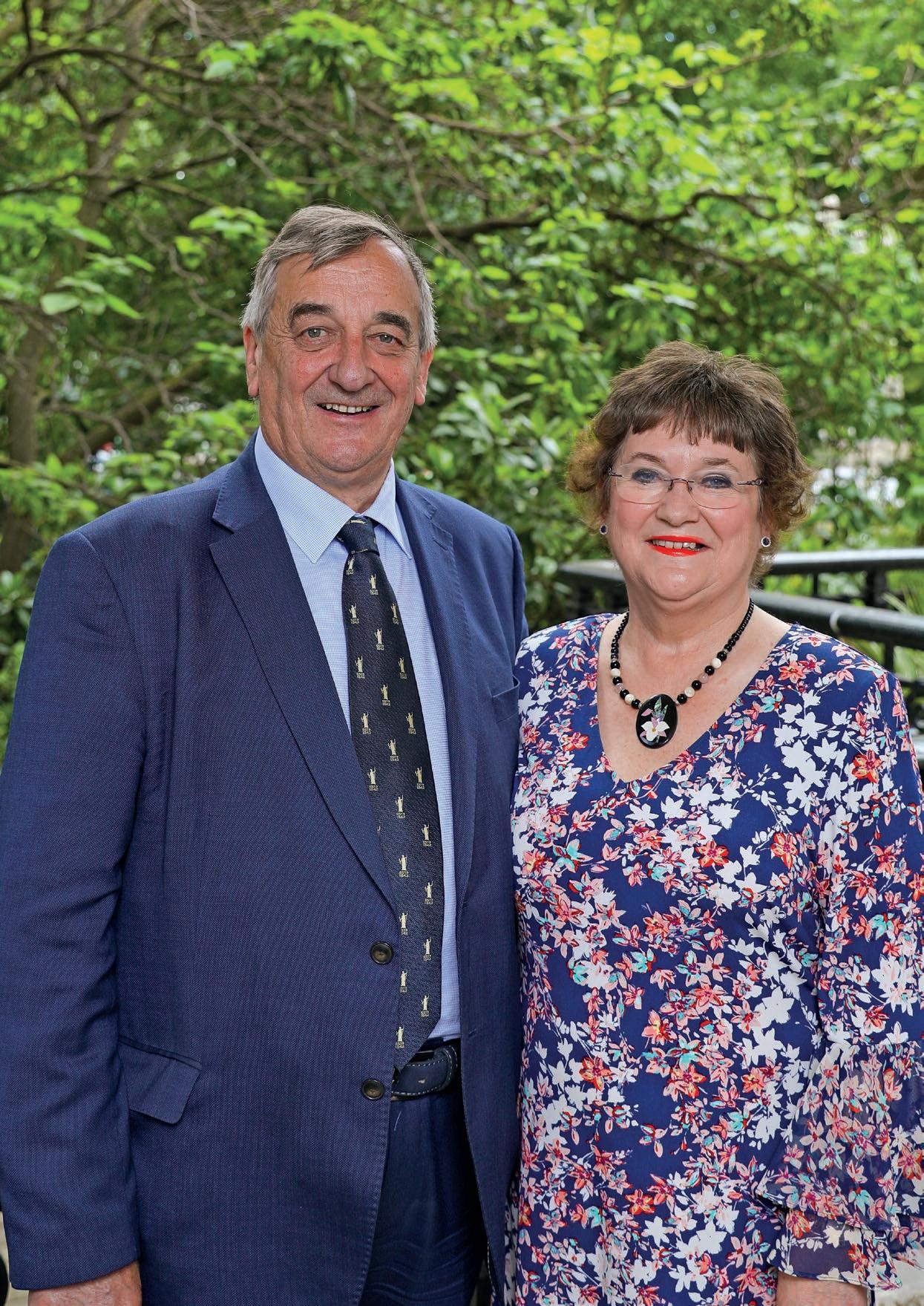
But first things first. The name is pronounced “my-rig”, reflecting his birth and upbringing in West Wales, where he now farms 3500 acres in a heavily capitalised family farming partnership.
As NFU President from 2014 to 2018 he earned a deserved reputation as a capable leader, equally connected to grass-roots farming and respected in Westminster, Brussels and beyond.
His hallmark has long been a ready desire to listen to arguments, with a wily appreciation of the issues and passions underlying them, and a strong drive to broker solutions, be it with Ministers, Defra Secretaries, policymakers or produce buyers.
NFU service
Meurig joined the Club in 1990 and it was soon homefrom-home as he held increasingly senior roles, serving eight
years as NFU Deputy President and two as Vice President, having started out as Pembrokeshire’s youngest NFU county chairman in 1989. “I learned so much at the Club, from listening to others, and really understanding their views.”
So, does he miss the NFU days? “Yes, sometimes, but the role is much more challenging today. I enjoyed it most of the time, some days were frustrating and there were occasions when you could get really angry. But I would not have missed it for anything.”
He remains very much an active farmer, engaged with the diverse West Wales farm business created with twin brother Mansel. Back in 1967, aged just 14, they inherited the 290 acre home farm when their father died. With support from their mother, and older brothers Leslie and Gilbert, who were already farming in their own right, a farming dynasty was born.
Day release studies at Haverfordwest College led to a planned programme of land purchases. In 1985 he attended the Worshipful Company of Farmers Advanced Farm Management course at Wye College, making long-lasting friends who have been a great support over many years.
By now the business was farming 1000 acres. Milk quotas and high interest rates created a huge strain, but they persisted, Meurig’s persuasive skills no doubt convincing the bank to lend more money for even more land purchases.
The family partnership, led by the brothers, wives Hilary and Rosalind, and Meurig’s son Paul and nephew Nigel, now farms 3500 acres across Pembrokeshire, including 1400 owned acres and a wide range of rental agreements.

Significant restructuring has provided sensible field sizes, two modern dairy units, grain drying and storage facilities, and more recently reservoirs, underground irrigation mains and potato grading facilities. Staff include 18 long-serving full-timers and 8-10 seasonal workers, this year from Kazakhstan.
Combinable crops typically account for 2000 acres, with over 400 acres of potatoes on owned and let land. Jordanston dairy has 380 milkers, Trenewydd 280, and the farm also runs 3-400 dairy replacements, up to 300 beef cattle and around 2500 store lambs are fattened over the winter.
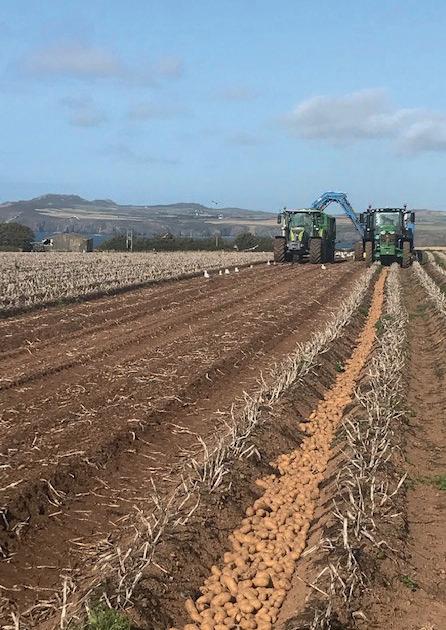
Family, friends and staff have all been tremendously supportive through Meurig’s career, and he regularly pays testament to this, including daughter Nicola who lives and works in Australia, and youngest son Jonathan, a City investment manager.
The farm’s open business structure means Meurig can remain involved, but also find time for other senior industry roles, including Food From Britain, HGCA, RABI, the Prices Countryside Fund, Oxford Farming Conference and NAAC. He was awarded an MBE in 2014 and CBE in 2018 for outstanding services

to the farming sector, and has received an honorary fellowship at the Royal Agricultural University and honorary doctorate from Harper Adams University.
He admits to being “fairly optimistic” about the industry’s future. “I still believe our consumers and society as a whole will demand that we produce more food.”
But while the industry has been restructuring for many years, and will continue to do so, he has noticed a tiredness, and uncertainty. “I meet a lot of farmers who are concerned about the lack of clarity in policy, and they are tired, especially where labour is difficult to source, for intensive livestock and cropping.
“They ask why they are risking large amounts of capital for the risks involved and lower than expected returns. The industry can increase production, but it needs to be given confidence.”
On devolution he has clear views. “To have a productive, competitive agriculture food has to travel across political borders. Our potatoes are processed in Wales, by Puffin Produce, which adds value and sells 60,000t to Welsh supermarkets, which is great for the Welsh economy.
“But there is not the processing capacity in Wales to add value to all the produce that Welsh farmers produce. Our milk goes to Muller at Severnside, oilseed rape to England for crushing, and our 1000t-plus of spring malting barley goes to Norfolk to be processed, even though it returns to Wales for distillation and brewing into Welsh drinks.”
“So, whilst there might be policy tweaks, the rules need to be basically the same. Commerce needs to work across borders, especially for red meat.”
His biotech views are equally clear. “It can help farmers reduce demand for inputs, like nitrogen and crop protection products, to combat climate change and support the environment. But the devolved nations need to support the UK position.”
Turning to bovine tuberculosis the gritty realism so often unrecognised by politicians and policymakers is evident. “We’ve been TB testing for five years. It’s had a huge impact. We have lost 200 animals over the past five years. It is an absolute nightmare; we are testing animals every two months and it is inevitable that staff and animals are injured on occasions.”
He believes the policy in England has helped control the disease where it was once rampant. “Policymakers need to follow through on the science. Otherwise, the mental and physical difficulty means some farmers will simply exit the industry as soon as they are TB free,” he notes.
But despite the industry’s pressures, the Club’s prospects remain strong, he believes. “There are 140,000 farmers in the UK, so there is a big pool to draw from. I would encourage anyone involved to become a member. It’s been hugely valuable to me and I look forward to taking it forward in 2023.”
“ There’s a wake-up call needed for government and society. Food security should be higher up the government agenda, especially with what is happening in Ukraine.”
“ There’s been many a conversation in the Bar or Restaurant at the Club that has hugely affected our industry.”Meurig with brother Mansel, son Paul (left) and nephew Nigel.
The Rt Hon Lord Benyon, Minister of State at Defra, spoke at the Club’s Monday Evening Lecture late last year. Charles Abel reports
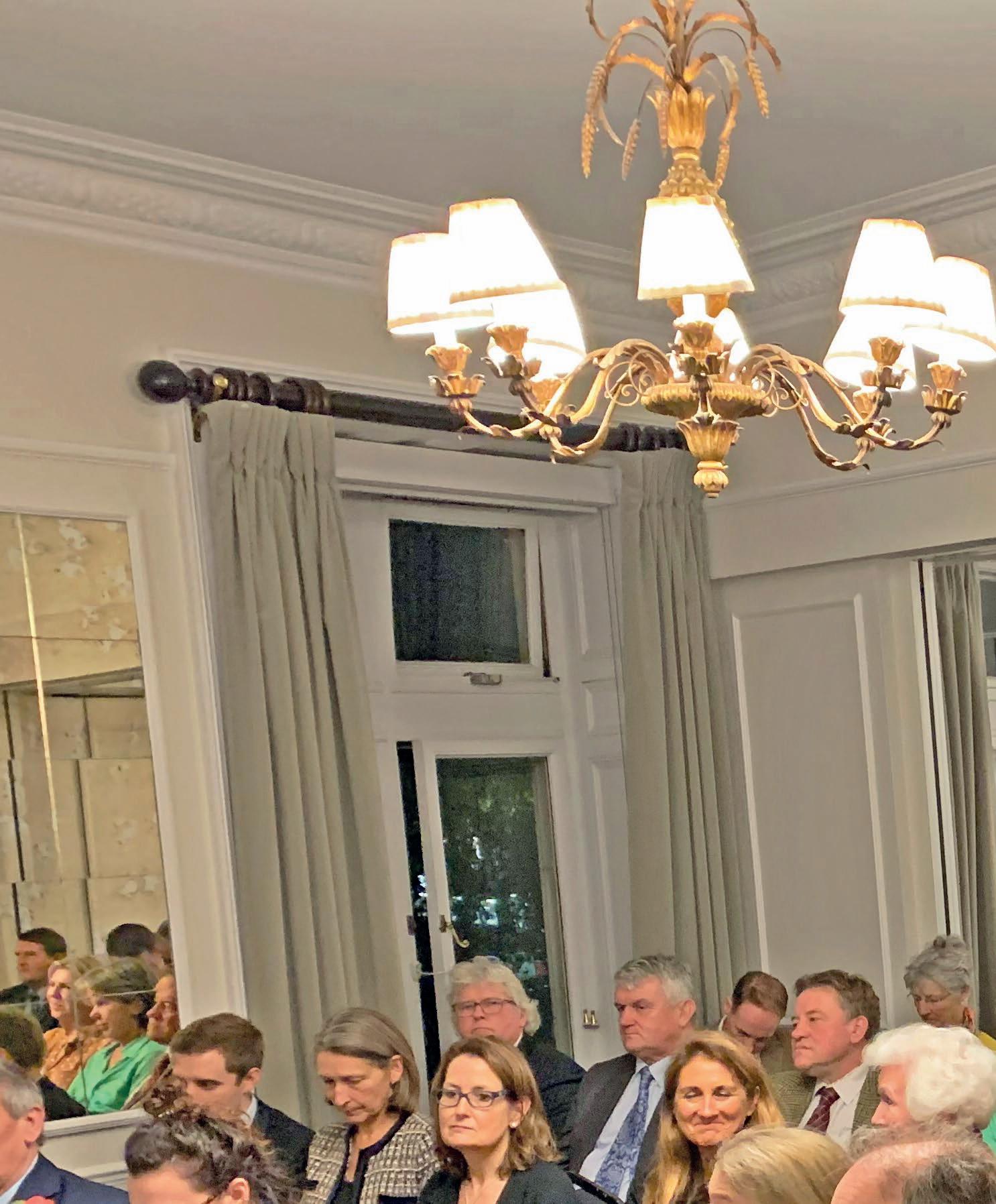
CLUB Chairman John Lee introduced Lord Benyon, Defra Minister of State, to the Club’s Monday Evening Lecture in the Farmers Suite late in October.
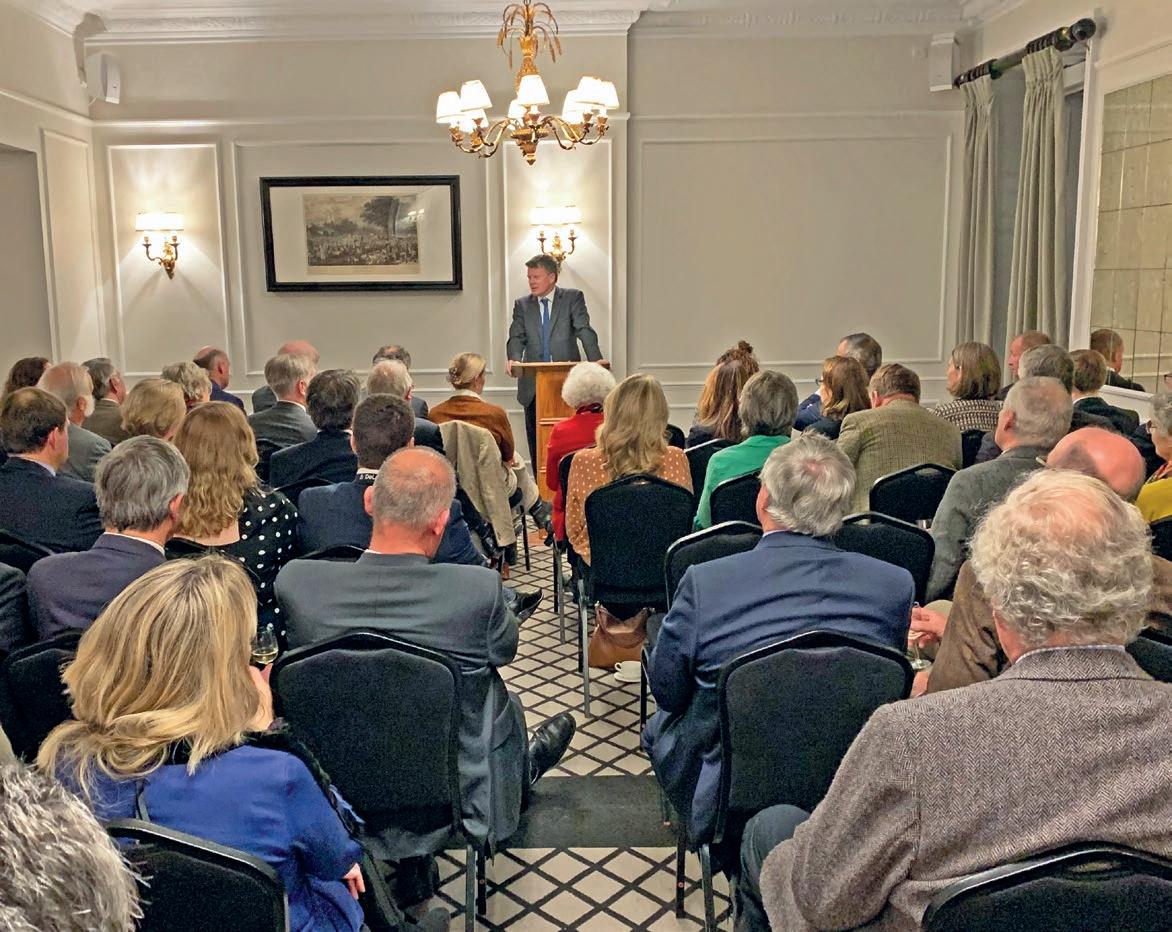
It was a welcome visit, Lord Benyon said. “I am a great fan of this Club. I’ve never left this building without learning something, usually of a farming nature to my own advantage.”
He paid testament to the Club’s farming heritage. “The Cumber Room, for example, the Cumber family are a great Berkshire farming family, and I did my practical on one of their farms.” Connections with farming families across the country, and the world,
made the Club a great place to talk about the future of farming and food production, as well as being a civilised place to meet.
“I want to take a moment to recognise how people like you have been at the heart of the farming industry through a period of enormous change – and I am not just talking about the post-Brexit years – I am talking about really in our generation we have probably seen more change in our world than generations before it, multiplied many times.”
Lord Benyon studied agriculture at the Royal Agricultural College, Cirencester, qualified as a land agent and returned home to farm in Berkshire, where he continues
“I am a great fan of this Club. I’ve never left this building without learning something.”
as “somewhat of an amateur farmer, alongside the day job in politics”.
“But I still walk the farm, and the most important thing that was said to me, the phrase that probably generations of you have heard, is that the best fertiliser is the boot-print of the farmer himself walking on his fields and getting to know them.”
With changes to the way farming is incentivised and supported he was starting to look at fields not as a whole but as different parts. “Which bits are productive, which bits aren’t? Without area payments we are going to concentrate on the bits that really can produce food and maybe do some interesting things with the other parts.”
He recognised there had been a bit of “mid-air turbulence” in recent days and weeks. He hoped a period of calm would follow – “not that such a thing ever seems to exist in politics.”
He said Government had three related goals: supporting viable businesses and growth; maintaining food production at its current level; and continuing to be at the forefront of environment, climate and animal health and welfare standards all over the world.
“I am confident that we can and will be a world leader in agriculture innovation, at a time when food, energy and clean water are things society is really going to need, added to which are carbon sequestration and wildlife and places for people to go to take their leisure and to restore their health.”
He recognised policies would continue to change, in consultation with farmers working through tests and trials. “We
shouldn’t be alarmed if governments, every now and again, have what is usually referred to as a review.”
He said Government needed to not take advantage of farming’s hard-wired desire to look after the countryside, but to work with it to make sure policy is right for farming and the countryside and society.
He said the new Sustainable Farming Incentive would support efficient and sustainable land use without off-shoring harms associated with lower production standards. “The natural environment is one of our most important assets, and this government remains committed to protecting it and enhancing it.”
“At Defra we know how important it is to listen and learn from the farming community. We have stepped up our partnerships through our co-design groups and when we say ‘the door is always open’ actually we do mean it and we want to hear from you.”
In ten years’ time he believed Defra would have a tried and tested codesigned world class system. “We have listened to feedback and with SFI there is no application window, there is no deadline, and there will be a much simpler method of application and reward.”
He said Defra was committed to supporting the next generation of farmers, with a new entrant’s scheme to create lasting opportunities to access land, infrastructure, and support and to establish a successful and innovative business, working with council farms and other landowners. He conceded that further conversations with the Home Office on agriculture worker visas might be needed.

Lord Benyon commended the ‘extraordinary moment of leadership’ when the NFU committed to farming hitting net zero by 2040. “I as a farmer am now baselining everything – how much carbon I am emitting, how much carbon I’m locking up, what I can do to prove additionality.

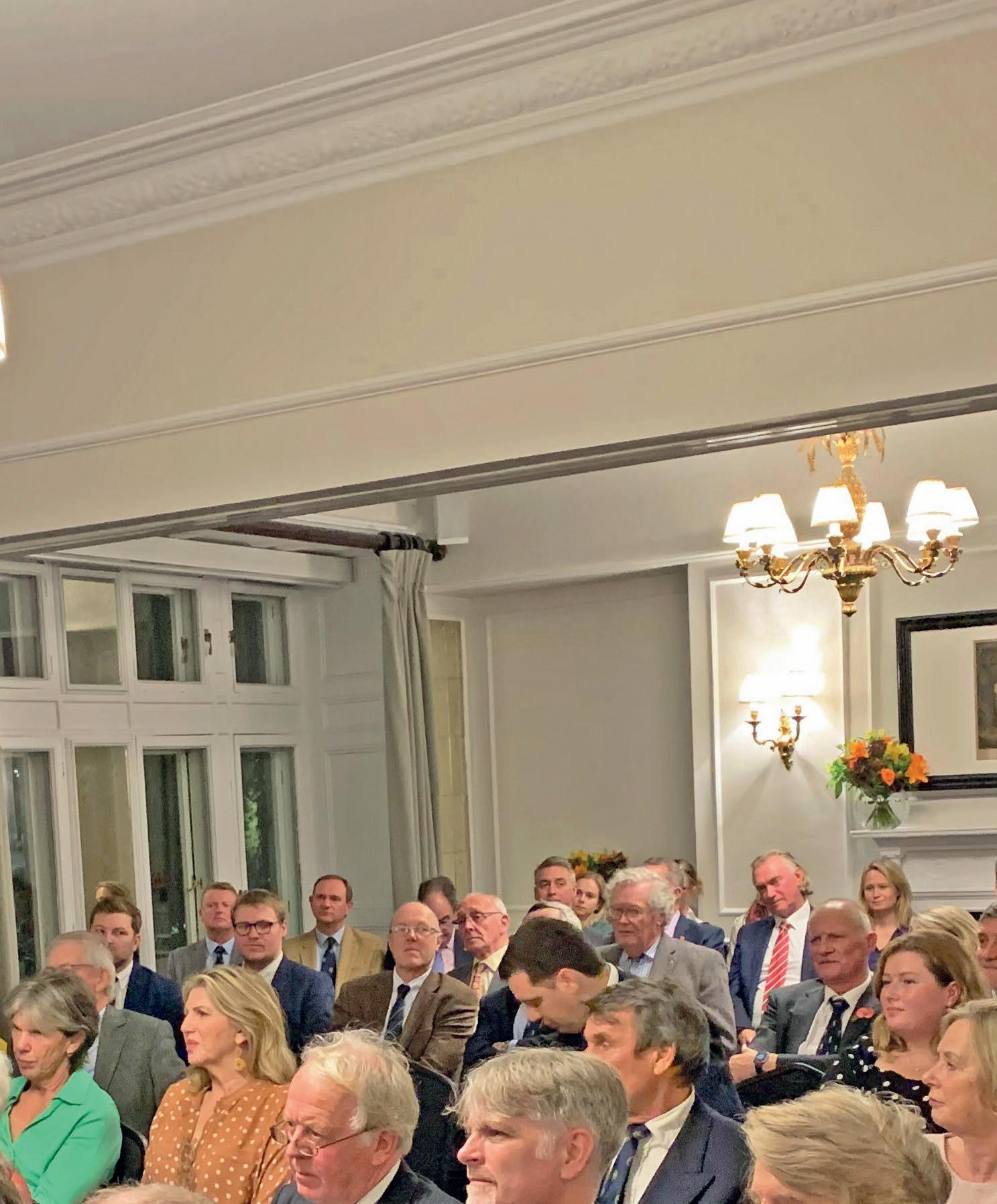
“I am doing that not just because I feel I should, and not just because Minette Batters told me I should, I am also doing it because I want to take advantage of some of the trillions of dollars of ESG (Environmental, Social and Governance) money that is floating around. And there is a huge potential, not just in terms of carbon, but also biodiversity net gain and biodiversity uplift generally.”
He said it was important to encourage food production. “The Precision Breeding Bill is going to put us just where we should be on making the vast majority of our land really fly, while restoring nature at the same time. It can be done.”
Educating people about food, to respect food, was also important. “We waste a third of what we produce. The impact that has on net zero, the impact that has on the cost to the taxpayer of waste, which is a societal problem. “We have got to make it socially unacceptable to waste food.”
On re-wilding, he had visited Knepp Estate, and recognised it was not for everywhere. But natural areas should be bigger, better and more joined up, which policy was addressing.
Concluding the evening Mr Lee said: “It seems clear to me that we have somebody in the Department that understands our industry, understands the challenges and, I believe, understands some of the solutions.”
“We shouldn’t be alarmed if governments, every now and again, have what is usually referred to as a review.”
A back-to-normal Oxford Farming Conference provided farming pointers aplenty. Charles Abel reports
THE 77th Oxford Farming Conference packed a punch as it tackled the thorny issue of how farming can take a fairer share of the value it creates.
Land is constantly called on to deliver solutions through responsible, sustainable food production, whilst meeting climate change, environmental and social objectives too. But there is scant regard for the implications for farmers and farming, noted Emily Norton, OFC chair and head of rural research at Savills.

There is a tolerated blind spot where the focus on consumer price trumps all else – including nutrition, quality, choice, production system, food security and social values. That needs to change.
Farmers are recognised as the greatest assets in supply chains, delivering great outcomes, but are the least respected, agreed Forum for the Future’s Lesley Mitchell. Supply chains extract all the efforts of farmers, as if they were their own, and provide too little reward. She felt producers were running out of patience. “Farmers aren’t going to continue to dig themselves into further debt.”
Shifting that is a priority, but needs stronger engagement from policymakers.
“If it is a structural priority for the country, it needs policy direction, not leaving to the market.”
Defra minister Mark Spencer denied that political and market structures were failing farmers and society, and that farmers were being inadequately recognised for meeting environmental, societal and climate change targets. But he did accept that risk
and reward was not being shared correctly across supply chains. There was “a role for government in ensuring those conversations take place” – but not for regulating it.
Daniel Zeichner, shadow Defra minister, said food security mattered to Labour, and it would address imbalances of power within the industry if elected, with more public procurement, a national land use framework, and a food security policy aligned to environmental and climate change needs.
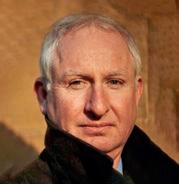
With so many overseas farmers producing food at lower costs, but also lower standards, more work was needed on trade deals, he added. “Sustained leadership must come from Government.”
To fully tackle the ‘one planet’ climate and biodiversity crises government-led system changes are needed, agreed Jane Davidson, Pro Vice-Chancellor Emeritus at University of Wales Trinity Saint David. The Wellbeing of Future Generations (Wales) Act 2015 is pathfinder legislation making sustainability the central organising principle of Welsh government. It made Wales the only country in the world with legislation to deliver on global sustainability goals. Other nations need to follow, she said.
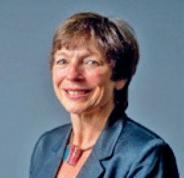
OFC Patron HRH The Princess Royal Princess Anne called for “really targeted investment and changes in farming systems to address supply chain problems, with costs not borne by primary producers alone”. Net zero transition will have to be funded, one way or another, so rules need to be right, so UK agriculture can advance without a huge extra burden, she added.
Rules-based trade to incentivise innovation is key, the USDA’s Jason Hafermeister maintained, enabling higher output with a
“Sustained leadership must come from Government”
Daniel Zeichner, shadow Defra minister
“Ecocide means unlawful or wanton acts committed with knowledge that there is a substantial likelihood of severe and either widespread or long-term damage to the environment being caused by those acts”
Jojo Mehta, Stop Ecocide International
“Sustainability governance values can’t be delayed”
Jane Davidson, University of Wales Trinity Saint David
“To bring our world back to life we can no longer tinker around the edges”
Kate Norgrove, WWF
reduced footprint to meet 2050 food supply without eliminating “nearly all the world’s wild spaces”.
The USDA is investing $3bn across 25m hectares to adopt new practices, measure outcomes and drive change. Regulation can discourage bad practices, but won’t encourage new ones, he said. Demand from the $500bn US ag market is key, and a large global market the only way entrepreneurs will invest in food production. “Trade rules must not discriminate regionally.”
But Kimberley Botwright of the World Economic Forum highlighted the challenges already being felt through geo-political turmoil. “Deals need to reflect that complexity” and national interests mean different levels of ambition and speed, leading to different costs in different markets, raising competitivity issues, and potentially trade wars. “Collaboration around issues like subsidies, and carbon pricing, are key, with mutual recognition of technical requirements to reduce friction.”
Environmental legislation, especially through the criminalisation of ecocide, will increasingly deter bad practice, at farm and corporate level, maintained Jojo Mehta of Stop Ecocide International. Its goal is for the crime of ecocide to underpin a preventive global legal framework to protect nature, climate and the world’s common future. The International Criminal Court could adopt it within three years. Belgium already has. Such clear direction will help accelerate innovation, she argued.
Baroness Kate Rock, who recently reviewed tenancies, recognised the need for further structural changes so tenanted land can engage in regenerative practices requiring a longer-term view. ELMS also needed to be more tenant-friendly. A tenant farming commissioner would help.
Radical collaboration between 1000 global agriculture researchers is delivering sciencebased decision-making to drive local, national and regional ag policies, said Cynthia Rosenzweig, a climate change scientist with NASA and Columbia Climate School, who gave the Frank Parkinson Lecture. The MAC-B model breaks down silos to fully account for all aspects and drive better policymaking.
Nature-based solutions
Too many corporates fail to pay for benefits derived from ecosystem services created and sustained by farmers, noted James Alexander of Finance Earth. Water companies saving water treatment costs where farmers manage soils more effectively, but paying farmers nothing for the benefit, were an example.
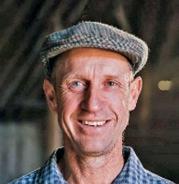
Nature needs to be made more “investable”, to help deliver the £50bn funding gap needed to redress nature issues over coming decades, without corporate greenwashing, said RSPB’s Beccy Speight.

Hampshire farmer
Jamie Butler typifies what is possible, creating a large new wetland to deliver saleable nutrient credits so local housing developments could progress in Hampshire. Whether other schemes could be stacked onto the same area, generating multiple incomes, was not yet clear.
Farmer innovations
Dung Beetles for Farmers entomologist
Sally-Ann Spence reckoned the 9t/ cow/year of cow pats can be much better managed, especially by more careful use of anthelmintics. Encouraging dung beetles not only reduces pasture fouling and parasite counts, but also boosts nutrient and organic matter content, raising productivity, she advised.
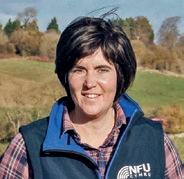
Agroforestry also has a viable place, if trees are planted with a clear focus on income, said Abi Reader, a mixed farmer from Wales and deputy president of NFU Cymru, who has planted 5000 trees/ ha in alternating strips. Strip one is willow, aspen, lime and cherry, generating an income every 3-6 years via biochar for sequestered carbon construction materials, with heat for polytunnel veg. The other strip is Polish Sida, a hi-protein, high-biomass crop with scope to replace soya in animal feed.
Clearly, farming is capable of doing so much. The question is whether the rest of the supply chain, and policymakers, can act more fairly, and so release farming’s full potential.
Regulation to rebalance supply chains is urgently needed to bring fairness, more equitable allocation of added-value, and shared investment in net zero, argues the 2023 OFC/Savills/WWF Annual Report. Years of putting efficiency ahead of values is coming home to roost, said OFC Chair, Emily Norton, with farmers suffering fraught relationships, unpredictable contracts, unmet production costs, burdensome supply charges and unjust notice agreements. “We’re at the verge of a food production crisis,” added report author Lesley Mitchell of Forum for the Future.

The supply chain’s heavy reliance on fossil fuels leaves it very vulnerable to disruption and to farmers disproportionately absorbing rising costs, and having to bear the risk and cost of GHG mitigating infrastructure and practices, while processors in the middle of the chain secure the largest share of ‘opaque’ profits. An ambitious cycle of improvement is needed, to bring reciprocity, shared negotiation, predictability, stability, confidence, and resourcing to invest and innovate.

“Our focus needs to be relentless and stubborn optimism”
Emily Norton, OFC Chair and Savills head of rural research
A tremendous afternoon on Monday 7th November, to honour the life of Her Late Majesty Queen Elizabeth II and present the 2022 Farmers Club Cup, was graciously supported by HRH The Countess of Wessex.
Despite travel difficulties over 40 members joined Chairman John Lee to welcome Her Royal Highness. All attending were presented to HRH and much lively debate was spawned before a finger buffet/tea and the presentation of the Club Cup.


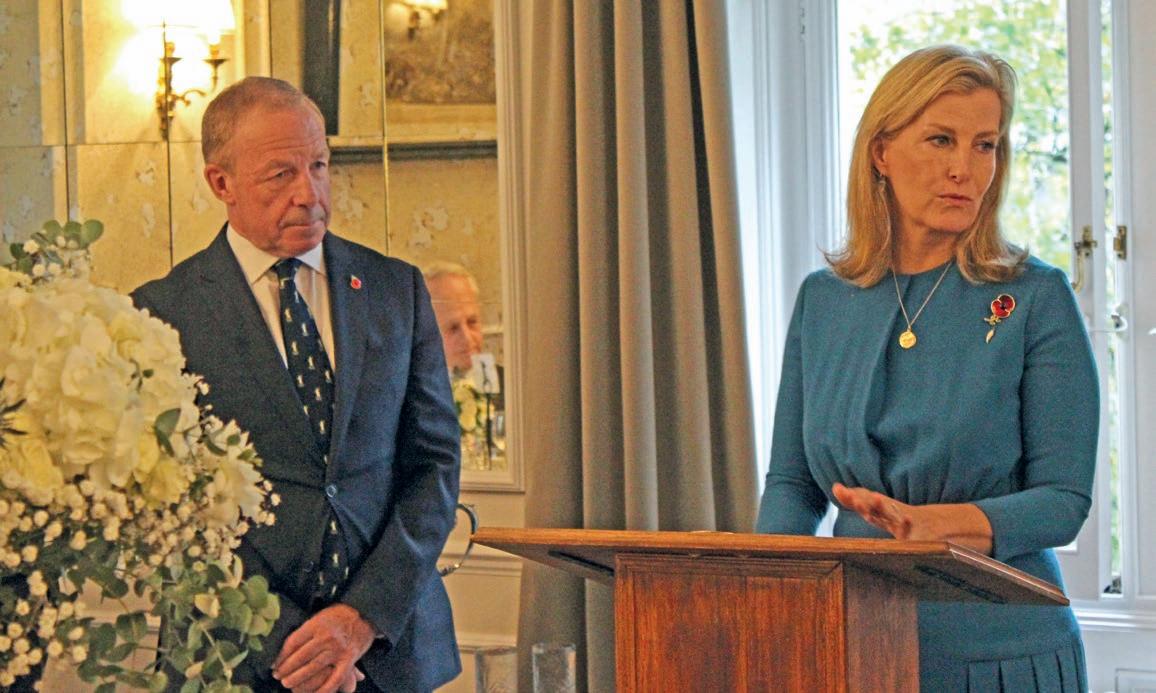
Tables were adorned with one of our late Patron’s favourite flowers, white button chrysanthemums, as John gave a moving speech. He reflected on the fact that in 1955, some 67 years ago, the Club was informed that her Majesty the Queen had graciously consented to become our patron, and so began a lifetime of Her late Majesty’s Patronage.
Despite all the pressures and demands, we should perhaps not be surprised this patronage endured, given Her late Majesty’s great knowledge and long and abiding interest in agriculture and the countryside, and thereby the importance of fellowship and debate the Club offers to our sector.
Previous Chairmen were honoured to welcome Her Majesty to the Club and to the pavilion at the Royal Show on many occasions – visits they and all the members and visitors to the Club and Showground will never forget.
Her Majesty was not just the Head of State of the United Kingdom and Head of the Commonwealth, but was also a figurehead of selfless devotion, dedication, and service, who carried out duties with strength and humility. John conveyed the thanks of the members of The Farmers Club to HRH The Countess of Wessex, The King and other members
of the Royal Family, as well as our sincere condolences.
He finished on an upbeat note that despite the great sadness still felt at Her late Majesty’s passing, and indeed that of His Royal Highness The Duke of Edinburgh, we should not forget the fun and more light-hearted occasions. Few will ever forget, for example, The Duke of Edinburgh popping round to the Club in his taxi, on a reasonably regular basis, for a half pint of pale ale!
John offered a toast to our late Patron, by way of one of her favourite tipples Gin and Dubonnet!
Uzbekistan’s new International Agriculture University, a partnership with Cirencester’s Royal Agricultural University, has officially opened in capital city Tashkent, with a new building named in honour of Her Late Majesty Queen Elizabeth II. The facility has the potential to exceed 3,000 students in three to five years.
THE Farmers Club Cup was presented with pleasure, but considerable regret at not being able to do so in person, as John announced Dr Caroline Drummond, late CEO of LEAF, as the posthumous winner, presenting the cup to her husband Philip Ward.

Caroline, a Club member, was known to almost all members of the Club and had a huge influence on agriculture, the countryside and sustainability. She was a pioneer of sustainable farming and food production, and driving force behind the global charity LEAF for more than 30 years.
Caroline led LEAF from its inception in 1991, and as Chief Executive expanded it into a globally recognised and respected organisation. Through its network of demonstration farms – managed to the highest standards – it showcases good practice to farmers and the public.
One of Caroline’s greatest achievements was the development and 2002 launch of the LEAF Marque, a UK-based farm assurance scheme that recognises and labels fresh produce, meat and arable crops grown to approved environmental standards.
Following initial scepticism from some retailers, Waitrose was the first UK supermarket to adopt the scheme in 2007. It is now used in 19 countries, certifying 48% of all UK-produced fresh fruit and vegetables. A major milestone came last autumn when Tesco began to roll out the scheme to its entire UK and global grower base.
Caroline also oversaw the introduction of Open Farm Sunday in 2006, which sees farmers open their gates to the public annually, typically attracting more than 250,000 visitors. Inspired by a model in Denmark, it has been instrumental in connecting consumers with farming, showing them where their food comes from and how it is produced.
Taken far too early, at the age of 58, John made much reference to the impact Caroline had made over very many years to sustainable farming in particular, but also to a number of cross-cutting agricultural initiatives.
A worthy award, tinged with sadness, but also remembrance of a woman who made a significant difference to the thinking of many for farming in the future.
Global sales of field robots are set to grow ten-fold in the decade to 2030, from $1.1bn to $11bn. “Robots can harvest crops, pick fruit, weed, milk livestock, apply fertilisers and monitor farm operations,” says Rachel Foster Jones, at GlobalData. They will also help ease labour shortages and cut pressure on natural resources. More generally, the overall robotics market will grow to $568bn, with commercial drones overtaking military ones, with Chinese farm drone innovations for imaging and surveying leading the way.
Despite the risk of irreversible damage to health a third of noiseexposed workers report not wearing hearing protection. With nearly 60% of former workers in noisy industries suffering some form of hearing loss, it is time to focus on sound monitoring and protective equipment, supplier Casella urges.
ON 22nd September 2001, Foot and Mouth case number 2026 was confirmed at Kirkby Stephen in Cumbria. Exactly one year later over 407,791 country people marched through London’s streets in Britain’s biggest ever civil liberties protest.
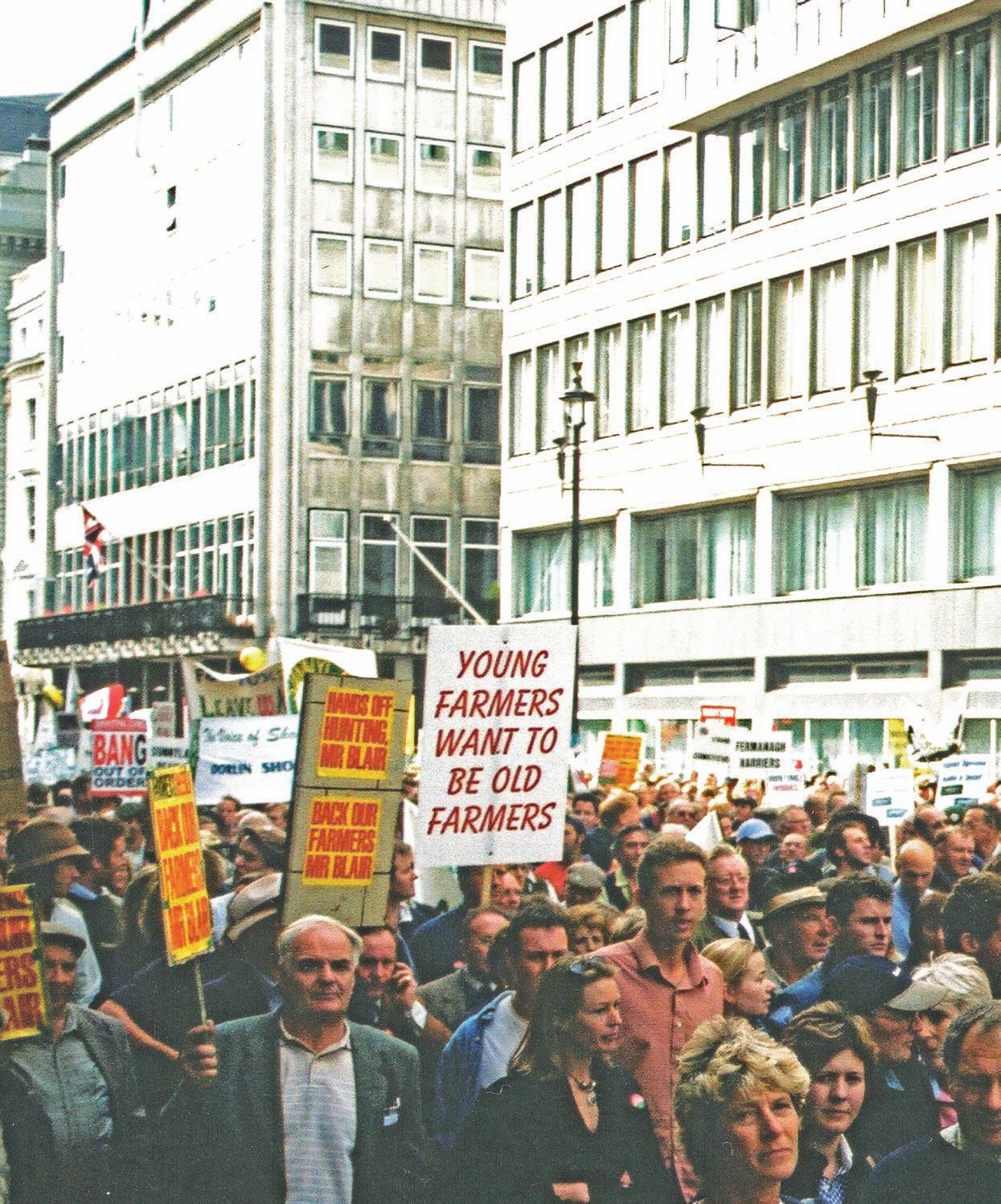
The aim was to show the Government the dis-satisfaction felt in rural Britain over a wide range of issues. It was not politically motivated, but fuelled by a passionate care and concern for the British countryside.
The Government’s proposed ban on foxhunting in England had lit the fuse, prompting thousands of busloads and hundreds of trainloads of people, of all shapes, sizes, ages and bank balances, to trek to the capital from all across Britain.
Placards carried by marchers showed concerns went much deeper than the proposed demise of a traditional country sport. The farming community, the economic lifeblood of rural Britain, had serious concerns for the future of rural communities and the entire British countryside.

Foot and Mouth had marked a watershed. For many who suffered either directly or in-directly the March was an emotional bloodletting
after the dismay at the Government’s determination to evade important questions about the handling of the disease.
But while Foot and Mouth was in the past, it was (and still is) the present and future that concerned Britain’s farmers.
The Government had a highly productive red tape factory, suppressing and complicating agricultural progress, while cheap foreign food from unmonitored systems, often dubiously labelled, elbowed British food aside on the shelves.
Farm livestock had less freedom of movement than tagged criminals, and humans using public transport received less consideration and comfort than animals on livestock lorries.
Rural infrastructure already bore negative scars, with rural health facilities, law enforcement, schools, post offices and transport amongst the casualties.
For me, the journey to the March started in Perthshire on September 21st, driving south to join my family who
farm in Herefordshire. From there we congregated at Ross on Wye livestock market to board one of the buses booked to take us to London.
Unsure as to how our expedition would turn out, we set off quietly from the market, which was still suffering the aftermath of Foot and Mouth; its catchment area had been almost swept clear of livestock.
London would be easy!
Our first comfort stop on the M4 Motorway signalled what was to come. There was barely enough space to park between the mass of coaches from rural Wales and the border counties. The loo queue stretched far across the coach park. We had over-whelmed a Motorway service station. London would be easy!
Arriving at Hyde Park we joined the Liberty section of the March. As each new bus load joined, with banners aloft giving the name of their region and explaining their concerns, a hero’s welcome was given.
Where were the “red coated toffs shouting Tallyho” and “the contorted faces” we had heard so much about from the Government? Not one red coat, and the faces were those of honest, decent, hard-working country folk.
At last we were off – marching up Piccadilly for Liberty and Livelihood – marching for Britain’s rural future. It intensely felt the right thing to do. Londoners on the pavements and balconies waved and cheered.


The first time “the rumble” happened I was unsure what it was. From right at the back of the queue, which by then was far away in Hyde Park, this Mexican wave of noise came closer, the horns, the whistles, the pipes, the halloos, the barking engulfed us, and we passed the message on in like fashion. It truly stirred the blood.
Just as we entered Whitehall the Livelihood March, another huge human tidal wave, joined from Whitehall Place. The noise was immense. And then we were in the Counting Zone, a screen above the crowd displaying the total figure. To a huge cheer it clicked to 325,000. It was 3.50pm and there were still tens of thousands behind us.
I had deliberately worn a locket given me for my 21st Birthday by my farming and fox (rat, mole, rabbit and mouse) hunting Father, who “went to ground” in 1986. I grabbed it and the tears ran as I muttered “you’ve done it Dad, you’re here and you’ve done it!” I looked at his grandchildren with his eyes – it was for them, their future.
Some “antis” made it clear what they thought of “murdering scum”. It was good to get a close look at these couple of dozen who were listened to by our Government with more than 407,791 country people with a different view. Strange thing “democracy”!
The opportunity to make history is rare. Every one of the 407,791 people who marched in London did so. When New Zealand’s farmers marched in 1986, their leader Peter Elworthy told them “we cannot guarantee politicians will listen, but we can guarantee the Government will ignore us if we don’t protest”.
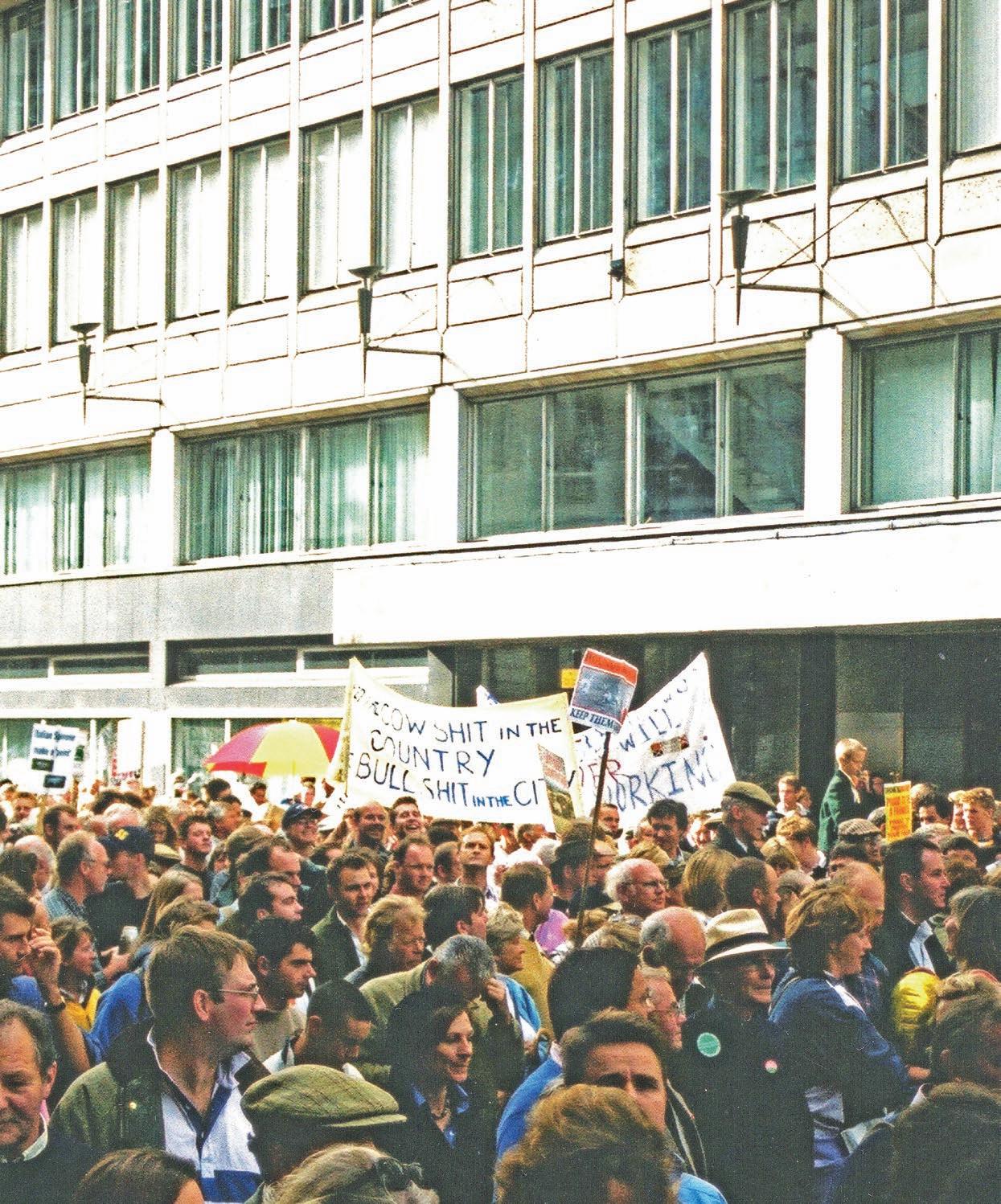
The March was a fantastic success, emphasising the strength of feeling, of betrayal and mistrust of the Government. We had marched with passion, for justice, and we HAD made our point. But would it make any difference?
Two decades later rural businesses and communities face huge challenges. Political decision-makers still fail to demonstrate a proper understanding of how rural Britain needs to operate. Farming is the heartbeat that created and sustains our beautiful countryside, while producing food to feed increasing millions of hungry mouths. Is anybody listening…..?
Twenty years ago the countryside march signalled deep dissatisfaction in rural Britain. Twenty years on, has anything changed, asks Claire Powell
“The March was a fantastic success, emphasising the strength of feeling, of betrayal and mistrust of the Government. But would it make any difference?”
I respond to your brief report on views at the UN COP27 Climate Change conference for the world to move away from meat and dairy towards a more plant based diet. Such advocacy has stolen a march, quite comprehensively, influencing opinions at every level.
But food choice is a privilege. Those with the means to push away nutritious food, like meat, should not create policies limiting access to nutrients in meat, a culturally appropriate food for many. This is moral and cultural imperialism.
It is wrong to shame people who are buying meat and dairy to feed their families as they have critical nutritional benefits:
1. Worldwide, 1 in 2 children and 2 in 3 women have at least one micronutrient deficiency, upsetting immune systems, hindering growth and development, and limiting human potential.
2. Top deficiencies are iron, zinc, folate, vitamin A, vitamin D, and B12. Up to 40% of children have multiple deficiencies. Animal-sourced foods are the only, or best, source of the above (except folate, in lentils too).
3. Deficiencies are not limited to low- and middle-income countries. Iron deficiency affects 1 in 5 women in the USA.
4. Climate friendly diets need to consider not just emissions but nutritional value per serving (not per calorie). A further shift from meat will do more harm, especially to women and children.
5. No experimental studies show meat harms health, only associations. Typical meat eaters have other unhealthy behaviours, like smoking and drinking. Allowing for those, red meat has not been found to cause ill health.
6. For processed meat, the science is also not significant. The overall risk of getting colon cancer is 5.6% and eating five slices of bacon daily for life would only raise this to 6.6% - not statistically significant.
7. Only one study looks at meat v less meat. It was done in Kenyan school children and showed adding meat increased academic scores, physical ability and behaviour.
8. Livestock can “up-cycle” nutrient poor food (grass, food scraps, waste from the plant-protein industry, grains of varying quality) into protein, iron, B12, and other critical nutrients – a net win for our food system.
9. Livestock are less susceptible to drought or extreme weather.
10. Most of the world’s agricultural land is too dry, brittle, or rocky to crop. Livestock thrive on marginal land.
Best regards,
It’s time to destroy the Methane Myth. Along with dogs COWS are mankind’s oldest friends. Their symbiotic relationship has produced great benefits, yet current hype and hysteria suggests we should all become vegetarian.
Hunter gatherers turned to farming hundreds of generations ago and acquired domesticated cattle for their new farmlands. Tribes globally have always had meat as an essential part of their diet. And grassland is the best way of recycling carbon – continuously.
So where does methane fit? It is a flow gas, which remains in the lower troposphere (10km above earth) for up to 10 years and is almost certainly in equilibrium. So the ‘problem’ is of vanishing importance.
Recent multi-year research from Munich University suggests methane emissions from ruminants has been overstated by three or even four times.
To update Mark Twain and Churchill: there are lies, damned lies, statistics and now computer models. Delusional thinking must not dictate public policies that threaten to upend western values and civilization. Cows should rule, OK?
Geordie Burnett Stuart, Mixed farmer & Club member AberdeenshireDonatello: Sculpting the Renaissance
V & A Museum, 11th February – 11th June
The first major UK exhibition to explore the exceptional talents of the Renaissance master Donatello, arguably the greatest sculptor of all time.
Faithful and Fearless: Portraits of Dogs from Gainsborough to Hockney
The Wallace Collection, 29th March – 15th October

Who doesn’t love man’s best friend? This new exhibition explores our devotion to four-legged friends across the centuries.
After Impressionism: Inventing Modern Art
National Gallery, 25th March – 13th August
Explore a period of great upheaval when artists broke with established tradition and laid the foundations for the art of the 20th and 21st centuries.
Orchids Inspired by the Beauty of Cameroon
Kew Gardens, 4th February – 5th March
The much-loved annual orchid festival is back, bigger and better than ever.
If I can book any of the above or any other aspect of your visit to the Club over the next couple of months please contact me via memexpmanager@thefarmersclub.com
The Great British Bake-Off Musical
Noël Coward Theatre, 25th February – 13th May

Dramatizes the much-loved television series
Mrs Doubtfire
Shaftesbury Theatre, 12th May – 13th January 2024
New comedy musical Mrs Doubtfire, based on the iconic movie, which starred the late Robin Williams.
Lemons Lemons Lemons Lemons Lemons
Harold Pinter Theatre, 18th January – 18th March
Jenna Coleman (Doctor Who, Victoria) and Aidan Turner (Poldark) will star in Sam Steiner’s play, which is billed as a love story that will leave you speechless.
The SpongeBob Musical
Queen Elizabeth Hall, Southbank Centre, 26th July – 27th August

One for the children, head to Bikini Bottom and visit the coolest pineapple under the sea (apparently the reference will make more sense if you’re under 16).
OKLAHOMA!
Wyndham’s Theatre, 16th February – 2nd September
It tells the story of a community banding together against an outsider, and the frontier life that shaped America.
Guys & Dolls
Bridge Theatre, from 27th February
Craig Godfrey Member Experience Manager The Membership Experience DepartmentAdmittedly a returning show, but expect to be thrown into the music like never before. The immersive adaptation will allow audiences to join the characters throughout the show.

As we settle into the new year, we are looking forward for another vibrant year of Member events! My first Journal piece for 2023 looks ahead to what’s new in London.
0.02%
Farmer profit share in pack of mild cheddar, 0.03% in beefburgers, ‘negligible’ in bread and carrots, despite bulk of risk
20-25%
Rise in new machinery costs in 2022
£380,000
Value of GPS and machinery theft from 14 Essex farms by a single pair of criminals
£95.6 million
Cost of farm fires in 2021, most due to electrical faults. Arson doubled to £8.4m
£852.5m
Agriculture fund announced at COP 27 for innovations to combat climate change
1,000+ faults
Failings identified at Animal and Plant Health Agency’s Weybridge site, Surrey
117t/ha
Wheat yield from high-energy, low-water, no pesticide, low land use vertical farming, Berlin-based salads grower Infarm claims
£1.8bn loss
Value of 3.3m tonnes of edible food wasted before ever leaving farms
English farmers applying for Defra’s exit scheme, compared with ELMS applications
-37.6%
Cut in value of AHDB levy spending due to 10 years of inflation and tax changes
Sources: NFU Mutual, Public Accounts Committee, FW, FG, Infarm, WWF/Tesco, AF, Sustain/Portsmouth & London Unis
After harvest, the Club golf season resumed with the John Alliston Tankard meeting at Stratfordupon-Avon Golf Club, writes Golf Secretary Martin Shaw. Twenty four members and guests had an enjoyable day. Geoff Matthews won the trophy with 42 points, Richard McDonald coming second. Eileen Hogan won Ladies prize and was part of the overall winning team. My thanks to Martin Taylor for helping organise this event. Enville Golf Club, Stourbridge was the venue for our Autumn meeting. Sadly, the numbers were rather disappointing, but those who played enjoyed two challenging courses in delightful late summer sunshine. Andrew Slack and Malcolm McAllister won the individual men’s competitions and Joy Young the ladies on both days.
The Club enters a four person team in the Bath Club Cup played at Woking Golf Club. Our team of Geoff Matthews, Richard Wain, Richard McDonald and Neil Stoddard finished 6th just 3 points outside the prizes – very creditable. Our friends from the Borders joined us for two days of golf at Alwoodley and Seaton Carew in late October. Both courses were in great condition with splendid hospitality arranged by Norman Bagley.
Neil Stoddard has now completed his COVID-interrupted Captaincy and thanks all members and guests who have supported meetings and represented the Club over the past three years. We welcome Charles Wylie as Captain for 2023.
APRIL
Friday 28th v EPICS @ New Zealand Golf Club
MAY
Tuesday 9th v New Club @ Luffness New Golf Club
Wednesday 10th v HCEG @ Muirfield Golf Club
Wednesday 24th v BVAGS @ Luffenham Heath Golf Club
JUNE
Sunday 4th Dinner @ Royal St Georges Golf Club
Monday 5th v XL Club @ Royal St Georges Golf Club
Wednesday 14th v WRNFU @ Otley Golf Club
JULY
Wednesday 5th Club Championships @ Blackwell Golf Club
AUGUST
Thursday 24th John Alliston Tankard @ Stratford upon Avon Golf Club
OCTOBER
Tuesday 3rd Bath Club Cup @ Woking Golf Club

Thursday 26th v Gareth Baird Select @ Alwoodley Golf Club
Friday 27th v Gareth Baird Select @ Seaton Carew Golf Club
Dates for our match v The NFU and the Autumn Meeting tbc.
New members wishing to play and receive golf related emails contact Martin Shaw at martin.edwardswale@gmail.com
At the time you receive this edition of the Journal l will have been at the Club for nine years. Since l arrived l have been on a mission to provide “Simply Cooked, Seasonal, Quality, British Food” our food ethos. This has been a wonderful journey for me, looking for suppliers and farms that can offer what we want, as and when we require it.
I have always tried to let you know where our produce is coming from, which is mentioned on our seasonal menus, and over the years it has proved to be a talking point for many of you. If a county isn’t mentioned during one season, it might be mentioned the following. But l can’t guarantee that during the course of a year every county will be represented.
We are struggling with exact locations of products used at present, due to supply and demand issues, including the effects of Avian Influenza. Dairy products including milk, cream and butter don’t always come from the same farm or dairy that we expect, but they are British, of equal quality, and in some cases a better product.
When talking about geography in this country there is great debate about the UK, Great Britain or the British Isles, which is why l thought it worthy of a mention, as members do ask why we are using food from certain areas.
The United Kingdom of Great Britain and Northern Ireland (to give its full name) refers to the political union between England, Wales, Scotland and Northern Ireland. The UK is a sovereign state but the nations that make it up are also countries in their own right.


The Channel Islands and Isle of Man are not part of the UK, but are Crown Dependencies.
Great Britain
Great Britain is the official collective name of England, Scotland and Wales and their associated islands. It does not include Northern Ireland.


British Isles
This is purely a geographical term –it refers to the islands of Great Britain and Ireland – including the Republic of Ireland – and the 5000 or so smaller islands scattered around our coasts.
I hope this explains why you see some of our produce from certain places. It’s all about the British Isles for us, in our ethos of “Simply Cooked, Seasonal, Quality, British Food”.
Enjoy!
Chef“It’s all about the British Isles for us, in our ethos of ‘Simply Cooked, Seasonal, Quality, British Food’.”Head
Having joined The Farmers Club in 2015, and the Committee in 2020, I’m delighted to be given the opportunity to Chair the Under 35s in 2023, having been Alice Hind’s Vice Chair last year.

Fortunately, as a Committee we aren’t losing Alice, who steps into the Immediate Past-Chair role and will continue to be involved in the Under 35s.
I am delighted Andrew Court is the 2023 Vice Chair and would like
to welcome four new committee members: Harriet Sylvester, Benjamin Barton, Edward Whattoff and Aled Thomas.
My interest in farming stems from being the fourth generation on a dairy and arable farm in Sussex and I am keen to ensure the Club provides an inclusive and friendly environment, irrelevant of one’s background, making everyone feel welcome.
2023 is set to be one of the busiest in recent years in terms of Under 35s
events, which I am very excited about. I have been working closely with Member Experience Manager, Craig Godfrey, using some of the ideas from the 2022 Under 35s questionnaire. If you have ideas to boost our calendar (farm walk, speaker etc) do let me know.
I am very much looking forward to 2023 and hope to provide a fun, educational and memorable year for all our Under 35 members.
Andrew Court – Staffordshire
(Under 35s Vice Chair) Credits Under 35s for so much: meeting people, networking, informative events, helping develop career and making great friendships along the way.
Rose Franklin – Gloucestershire
Recently ran Shropshire Petals, but now back in Glos building own home with husband and working as Operations Manager of Tyndale Vets.
Harriet Sylvester – Suffolk
Runs own business as a Ceramics
Conservator – just like The Repair Shop!
Enjoys Under 35s as a great place to meet like-minded people with a variety of backgrounds.
Ben Barton – Gloucestershire
Fourth generation mixed farmer from Cirencester primarily beef sucklers. Enjoys usual country sports, Gloucester Rugby, and doing a bit of magic!
Edward Whattoff – Lincolnshire
From a family farm in South Lincs, passionate about farms being successful through diversification, sustainability, and being an integral part of the rural community.
Aled Thomas – Pembrokeshire
From a pig, potato and arable farm in West Wales, elected County Councilor, works in City of London analysing global rice market.
Lord William Seymour, Earl of Yarmouth – Warwickshire
Club member for over a decade, won Jill Willows Scholarship to Canada RASC in 2018, seeking to expand JWS by creating awareness and involvement.
Alice Hind – Denbighshire, Wales (Immediate Past-Chair)
Originally from Wales, now an Early Years teacher in central London. Enjoyed year as Chair in 2022 and excited to see what Emily has planned for the year ahead.
Under 35s events:
Fri 10 Feb
Cupids Cocktail Making Evening, The Farmers Club
Sun 12 Feb
Twickenham
England v Italy
Fri 24 Feb
New Chairman’s Supper, The Farmers Club
Sat 25 Feb
Saturday Social
The Book of Mormon, Prince of Wales Theatre
Fri 17 Mar
St Patricks Social, The Farmers Club
Sat 25 Mar
Under 35s Host Agrespect, The Farmers Club
After a three year hiatus, farm walks made a welcome return to the Under 35s calendar, as we were kindly welcomed to the Eaton Estate, part of the wider Grosvenor Estates, in November.

The day began with a tour of the timber yard guided by Greg Vickers, Head of Forestry. The aim is to utilise wood from across all Grosvenor’s Estates, he explained, with the timber yard being unique in the UK in grading to C24 construction standard. We saw the entire process from cutting trunks to the dry kiln.
The estate now utilises 100% of what was previously written off as a waste product, with any leftover or rejected timber chipped and used in boilers.
After a quick cup of tea Anthony Jones, Head Gamekeeper, showed us one of the estate’s many biodiversity projects. To meet the family’s environmental ambitions a synergy has been established
between forestry, farming and game departments, around the four basic pillars of soil, air, water and biodiversity.
We visited a wetland project to illustrate this. The success was clear to see. By flooding a low-lying meadow, the land had naturally reverted to reeds and rushes, providing the perfect home for an ever-increasing population of animals, including snipe, barn owls and even a family of otters.

The next stop, after a quick drive past the farm’s enormous silage clamps, was Lea Manor Farm, home to over 2000 pedigree Holstein cows. Charlie Steer, Grosvenor Farms’ Arable Manager, began by showing us their 60 place external rotary parlour, which milks the entire herd three times a day, producing upwards of 90,000 litres of milk.
Charlie explained how, using circular faming principles, the arable and dairy enterprises work together to
benefit the soil, environment and economics. Techniques include wide crop rotations, growing fodder sources internally and maximising slurry use to minimise artificial fertiliser requirements.
The tour concluded with a presentation demonstrating the estate’s next big project – anaerobic digestion – which the team believes will further help to deliver on their circular faming goals, by producing clean sustainable methane gas to produce electricity for the national grid and power their fleet of tractors and machinery.
We would like to thank the staff at Grosvenor Estates: Greg, Anthony, Charlie and particularly Annabel Farbon for organising such an enjoyable and informative tour. It is events like this that underline the importance of farm walks to the Under 35s, providing members with opportunities to learn and explore different aspects of our diverse and dynamic industry, helping them to develop and grow their careers.
Andrew Court Under 35s Vice ChairCheshire was the destination for a welcome return to Under 35s farm walks. Andrew Court reports
020 7930 3557 • www.thefarmersclub.com
HONORARY VICE PRESIDENTS
Barclay Forrest OBE, Sir Mark Hudson KCVO, Peter Jackson CBE, Mrs Susan Kilpatrick OBE, John Parker
THE COMMITTEE OF MANAGEMENT OF THE CLUB 2023
VICE PRESIDENTS
Paul Heygate, Julian Sayers, Nicki Quayle
PRESIDENT AND CHAIRMAN
Meurig Raymond CBE DL
TRUSTEES
Tim Bennett (Chairman), Peter Jinman OBE, Jimmy McLean, Keith Redpath
VICE-CHAIRMAN
Richard Maunder
HONORARY TREASURER
Christopher Riddle
IMMEDIATE PAST CHAIRMAN
John Lee OBE DL
CHIEF EXECUTIVE AND SECRETARY
Andrei Spence
CLUB CHAPLAIN
The Reverend Dr Sam Wells
COMMITTEE
Elected 2020 to serve from 2021 to 2023 inclusive: Ian Bell OBE (re-elected), Tony Bell, Alan Plumb, Anthony Snell
Elected 2021 to serve from 2022 to 2024 inclusive: Stephen Butler, John Hardman (re-elected), Tom Rawson, Janatha Stout
Elected 2022 to serve from 2023 to 2025 inclusive: Sue Bullock (re-elected), Sarah Cowlrick (re-elected), Sophie Dwerryhouse, Lindsay Hargreaves, Mark Riches, John Wilson
Co-opted: Emily Pile (Chairman Under 35s), Andrew Court (Vice Chair Under 35s)
THE FARMERS CLUB CHARITABLE TRUST TRUSTEES
Nick Green (Chairman), Vic Croxson DL, Meryl Ward MBE, Des Lambert OBE, Dr Jenna Ross OBE, James Squier, Christine Tacon CBE, The Chairman and Vice-Chairman of the Club (ex officio). Patron Mrs Stella Muddiman
As you know Craig your Member Experience Manager heads up the Member Experience Department. Kirsty Allen has recently joined the team as Member Experience Co-ordinator, reporting into Craig.
As you know Craig your Member Experience Manager heads up the Member Experience Department. Kirsty Allen has recently joined the team as Member Experience Co-ordinator, reporting to Craig.
The Member Experience Department concentrates on improving your overall Club member experience. Craig will continue to provide bespoke ideas for your visits to London and the much loved “Craig’s Corner” will continue to be published on a regular basis.
Kirsty will primarily be looking after Club events that take place in and around London and further afield on Club to Country visits around the UK.
The Member Experience Department concentrates on improving your overall Club member experience. Craig will continue to provide bespoke ideas for your visits to London and the much loved “Craig’s Corner” will continue to be published on a regular basis.
Craig, Member Experience Manager: memexpmanager@thefarmersclub.com
Kirsty will primarily be looking after Club Events that take place in and around London and further afield on Club to Country visits around the UK.


Craig, Member Experience Manager: memexpmanager@thefarmersclub.com
Kirsty, Member Experience Co-ordinator: memexpcoordinator@thefarmersclub.com

When you login to your online account on the Club’s website, the username will always be your membership number as this is the only detail that never changes on your member account.
• If you have never logged in online or it has been a long time since you have done so, please go to www.thefarmersclub.com then;
- Click on MEMBERS AREA and use the “Forgotten password?” link located under the LOGIN button. Follow the instructions and a password reset email will be sent to your registered email address.
• If you have not received the email within five minutes, please check your Spam/Junk folders, find the email and mark it as “safe” by right clicking on it and selecting Junk -> Never Block Sender
• If you receive the email but do not use the password reset within 20 minutes, the security token expires and you will need to restart the reset process again by using the “Forgotten password?” function.
If unsure about your membership number or email address registered on the account, email membership@thefarmersclub.com For technical issues email itmanager@thefarmersclub.com
FEB 10TH
Under 35s: Cupids Cocktail Making Evening, The Farmers Club
MAR
17TH
FEB 12TH
Under 35s: England v Italy, Twickenham
FEB 24TH
Under 35s: New Chairman’s Supper, The Farmers Club
MAR 25TH
Under 35s: Hosting Agrespect, The Farmers Club
MAR 31ST
Spain and the Hispanic World
APR tbc
MAY 9TH
Pre-Balmoral Show Dinner
25TH
18TH RHS Chelsea Flower Show
JUNE
5 - 7TH
21ST Royal Norfolk Show Reception
7TH Great Yorkshire
Hampton
24TH
11TH Royal Welsh Show Reception
For further information and to book Club Events see Club website & Club e-Newsletters
SEPT tbc
13TH
6TH Kent County
Westmorland Show Reception
OCT 10TH New Year’s Eve Black Tie Dinner
31ST